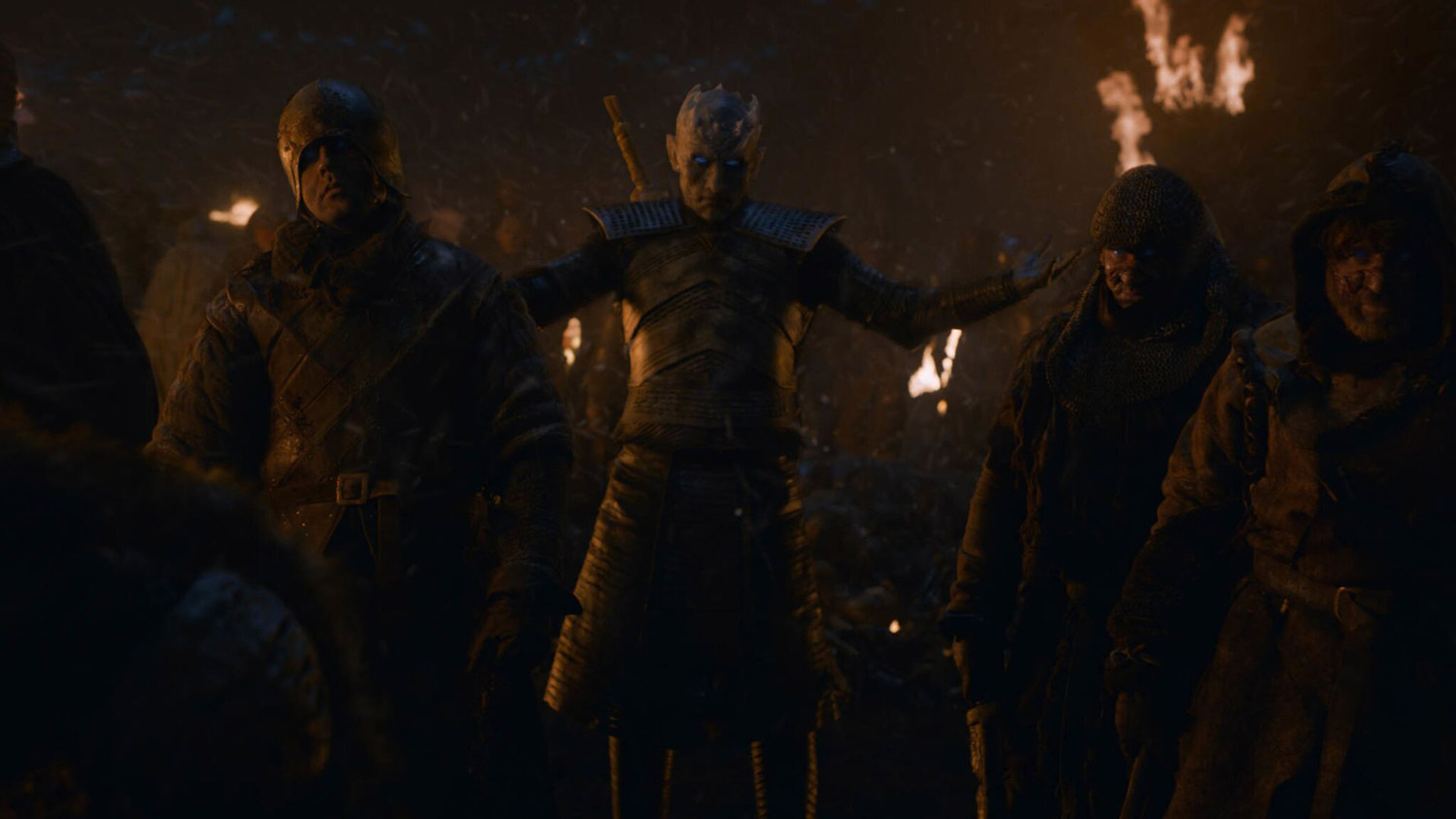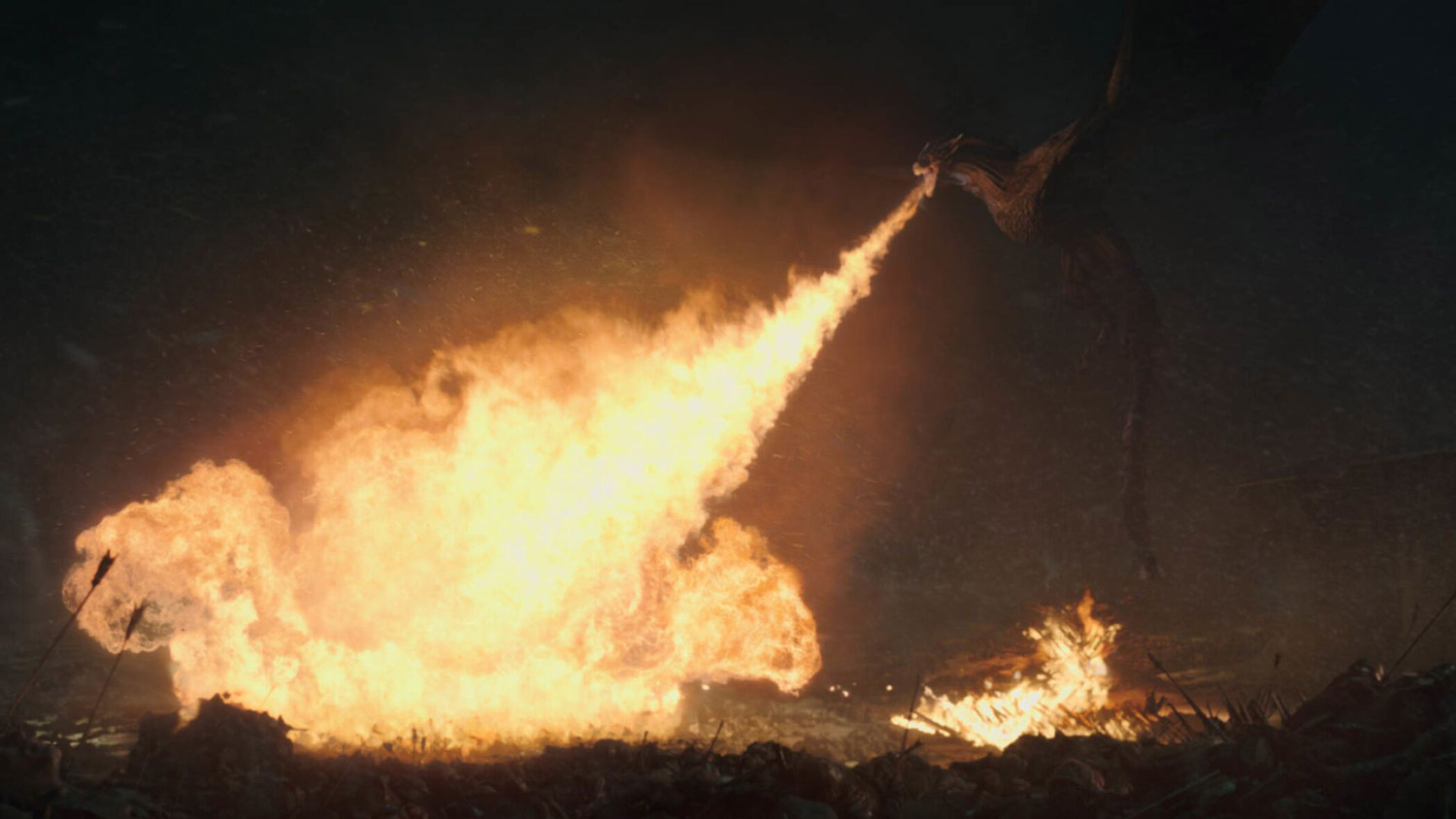The Bible, the Upanishads and the Koran: all religions recognise that light is the positive pole of a pair with darkness and shadows at the opposite side.
In Western philosophical thought, this binary conception has been widely accepted since the early texts of Anaximander, coming to deeply influence our collective imagination.
Light has always become a symbol of light and rebirth, while darkness leads us to think of death, pain and oblivion.
This antinomy is central to a large part of fantasy literature, from The Lord of the Rings by Tolkien to Game of Thrones.
In the series produced by HBO (and available in full on demand on Sky and in streaming on NOW TV), which has received 128 Emmy nominations across its eight seasons, winning as many as 47 of them, the theme of the battle between light and dark has a fundamental role, especially in the last season.
The White Walkers, an army of undead warriors led by Night King who pushes at the Northern borders, brings with it the threat of a return, after eight hundred years, of the Long Night, a time of frost, darkness, destruction and death. Daenerys Targaryen and Jon Snow guide an army formed from an alliance to save Westeros from darkness.

Courtesy of HBO
The final battle with the White Walkers takes place in the third episode of the last season, entitled The Long Night: darkness literally looms over Winterfell, the capital of the North, while the undead march towards the city.
In this episode, the photography ensures that this conflict is visually thematised. Apart from the battle between the two armies, there is also a conflict between light and dark: the darkness brought by the White Walkers seems to invade and swallow everything; this is opposed by the light emanating from the fire that the besieged use both to risk a long night of war and as a defensive weapon to create a protected area around them, at least temporarily.
One scene in particular shows this struggle: the charge of the Dothraki cavalry, which marks the beginning of the battle. The defending army is deployed outside the walls of Winterfell. Before their eyes there is only darkness, which hides the army of White Walkers. The tension of the wait is broken by Lady Melisandre, the priestess of the Lord of Light, who grants the power of fire to the Dothraki; the blades of their sabres are engulfed in flames and the scene, previously dominated by threatening darkness, is illuminated by hundreds of torches. This miraculous event galvanizes the cavalry, which charges while chanting battle cries, rekindling hope, not only in the whole army defending Winterfell, but also in the onlookers. A shot from above makes this scene appear even more epic and dramatic: the clash is no longer between two armies, but between good and evil, light and darkness.
Apart from the battle between the two armies, there is also a conflict between light and dark.
The force of light seems to prevail, but almost immediately each light goes out, swallowed by the darkness: the Dothraki are destroyed, their cries stop and their flaming sabres go out. Darkness returns to take over the whole shot, evoking the most ancestral fear of mankind: the fear of darkness that we experience in childhood, and that has followed the human race since the dawn of time.
Now the White Walkers charge directly towards the walls of Winterfell. The outcome of the battle seems obvious, but hope is rekindled thanks to a heroic act by Melisandre: by exposing herself to attack by the Others in order to ask the Lord of Light to set the palisades on fire to defend the citadel, she manages to halt the advance of darkness and give Daenerys and her dragons the reference points needed to locate the heart of the battle in the dark.

Courtesy of HBO
Many have attributed the choice to thematise the conflict between dark and the light so strongly to non-narrative reasons, such as a lack of budget and production delays. The narrative conditions for such a radical choice, however, were all there: the White Walkers have the intention of bringing the Long Night, a threat that hovers over Westeros, since the first episode of the series; darkness is the main feature of this catastrophic event, it is what the protagonists fight against and it is, metaphorically, the fear of oblivion and eternal unconsciousness; it is no accident that Bran, who can see in all the dimensions of time, and therefore holds the memory and conscience of all mankind in the Game of Thrones, is the Night King's target. After all, fear of eternal night is something the whole human race shares, something that assails us from childhood; this also contributes to making Game of Thrones such a universal and engaging narrative.